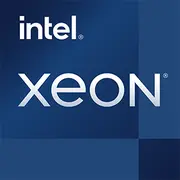Intel Xeon E5-1620

The Intel Xeon E5-1620 is a powerful processor designed for server use. With a total of 4 cores and 8 threads, this processor offers impressive multitasking capabilities and is capable of handling a wide range of demanding server workloads.
With a base frequency of 3.6 GHz and a max turbo frequency of 3.8 GHz, the Xeon E5-1620 delivers exceptional performance for server applications. The 10MB of L3 cache helps to further enhance its speed and responsiveness, making it ideal for tasks that require quick data access and processing.
With a TDP of 130W, this processor does require a decent amount of power to operate efficiently, but it is well worth it for the level of performance it offers. The Geekbench 6 scores for single core and multi-core performance further validate the processor's capabilities, with scores of 690 and 2533 respectively.
Overall, the Intel Xeon E5-1620 is an excellent choice for server use, offering impressive performance, multitasking capabilities, and efficient data processing. Whether you are running complex applications, virtualization workloads, or high-performance computing tasks, this processor is well-equipped to handle the job.
Basic
Label Name
Intel
Platform
Server
Launch Date
March 2012
Model Name
?
The Intel processor number is just one of several factors - along with processor brand, system configurations, and system-level benchmarks - to be considered when choosing the right processor for your computing needs.
Xeon E5-1620
Code Name
Sandy Bridge-E
Foundry
Intel
Generation
Xeon E5 (Sandy Bridge-E)
CPU Specifications
Total Cores
?
Cores is a hardware term that describes the number of independent central processing units in a single computing component (die or chip).
4
Total Threads
?
Where applicable, Intel® Hyper-Threading Technology is only available on Performance-cores.
8
Performance-core Base Frequency
3.6 GHz
Performance-core Max Turbo Frequency
?
Maximum P-core turbo frequency derived from Intel® Turbo Boost Technology.
3.8 GHz
L1 Cache
64K per core
L2 Cache
256K per core
L3 Cache
10MB shared
Unlocked Multiplier
No
Multiplier
36.0
Bus Frequency
100MHz
CPU Socket
?
The socket is the component that provides the mechanical and electrical connections between the processor and motherboard.
Intel Socket 2011
Technology
?
Lithography refers to the semiconductor technology used to manufacture an integrated circuit, and is reported in nanometer (nm), indicative of the size of features built on the semiconductor.
32 nm
TDP
130 W
PCIe Version
?
PCI Express is a high-speed serial computer expansion bus standard used for connecting high-speed components, replacing older standards such as AGP, PCI, and PCI-X. It has gone through multiple revisions and improvements since its initial release. PCIe 1.0 was first introduced in 2002, and in order to meet the growing demand for higher bandwidth, subsequent versions have been released over time.
3
Transistor Count
1.27 billions
Memory Specifications
Memory Type
?
Intel® processors come in four different types: Single Channel, Dual Channel, Triple Channel, and Flex Mode. Maximum supported memory speed may be lower when populating multiple DIMMs per channel on products that support multiple memory channels.
DDR3
Memory Channels
?
The number of memory channels refers to the bandwidth operation for real world application.
4
ECC Memory Support
Yes
GPU Specifications
Integrated Graphics Model
?
An integrated GPU refers to the graphics core that is integrated into the CPU processor. Leveraging the processor's powerful computational capabilities and intelligent power efficiency management, it delivers outstanding graphics performance and a smooth application experience at a lower power consumption.
N/A
Benchmarks
Geekbench 6
Single Core
Score
690
Geekbench 6
Multi Core
Score
2533
Geekbench 5
Single Core
Score
820
Geekbench 5
Multi Core
Score
3225
Passmark CPU
Single Core
Score
2228
Passmark CPU
Multi Core
Score
7377
Compared to Other CPU
Geekbench 6 Single Core
Geekbench 6 Multi Core
Geekbench 5 Single Core
Geekbench 5 Multi Core
Passmark CPU Single Core
Passmark CPU Multi Core
Share in social media
Or Link To Us
<a href="https://cputronic.com/cpu/intel-xeon-e5-1620" target="_blank">Intel Xeon E5-1620</a>